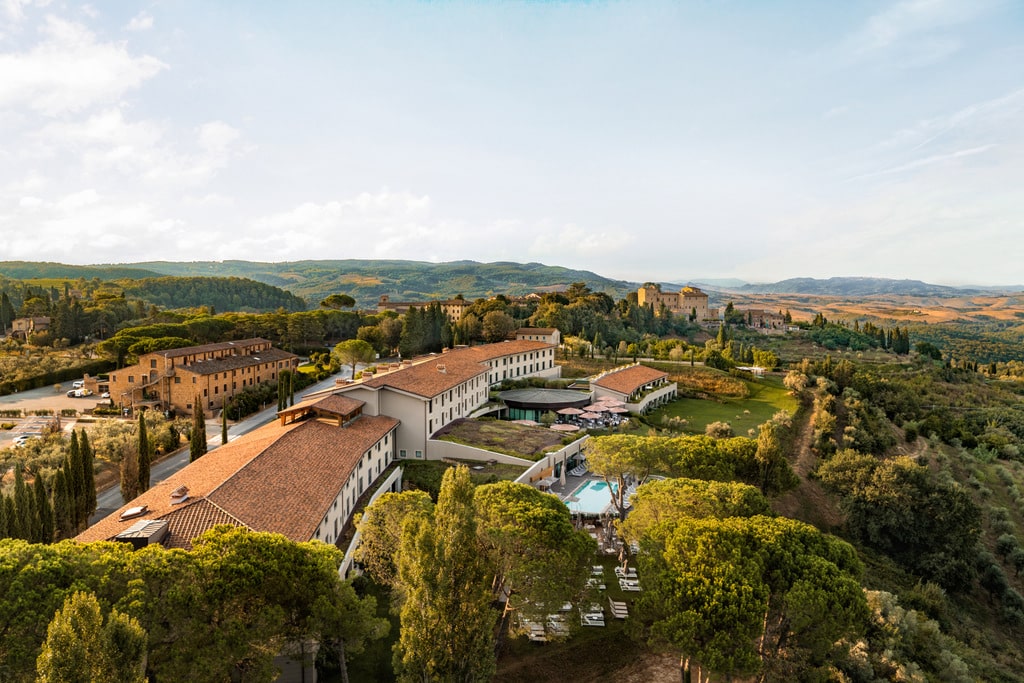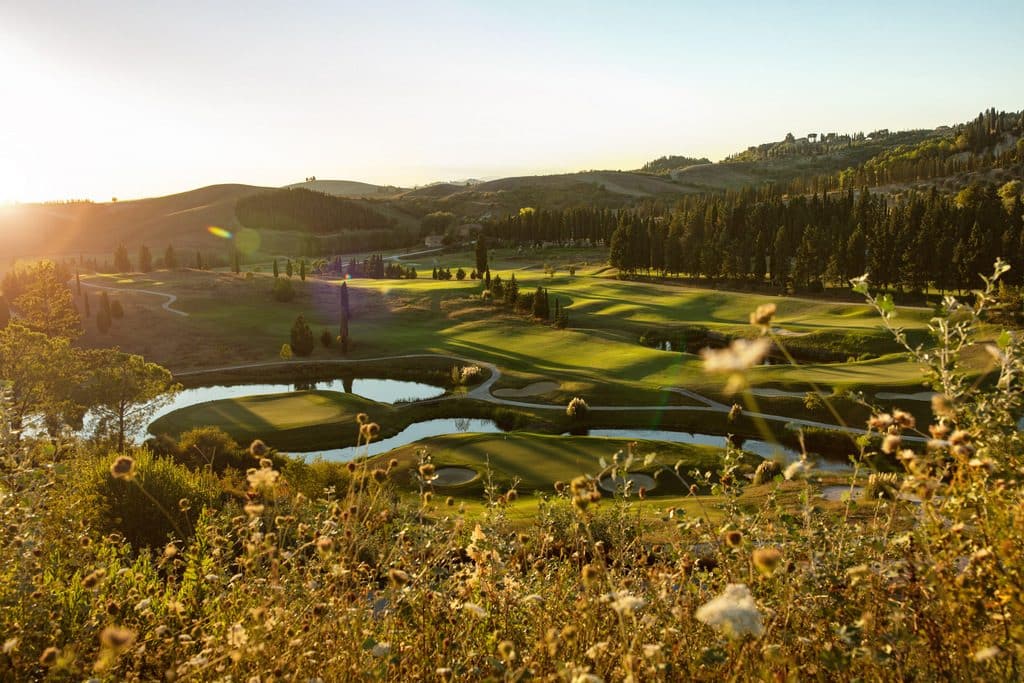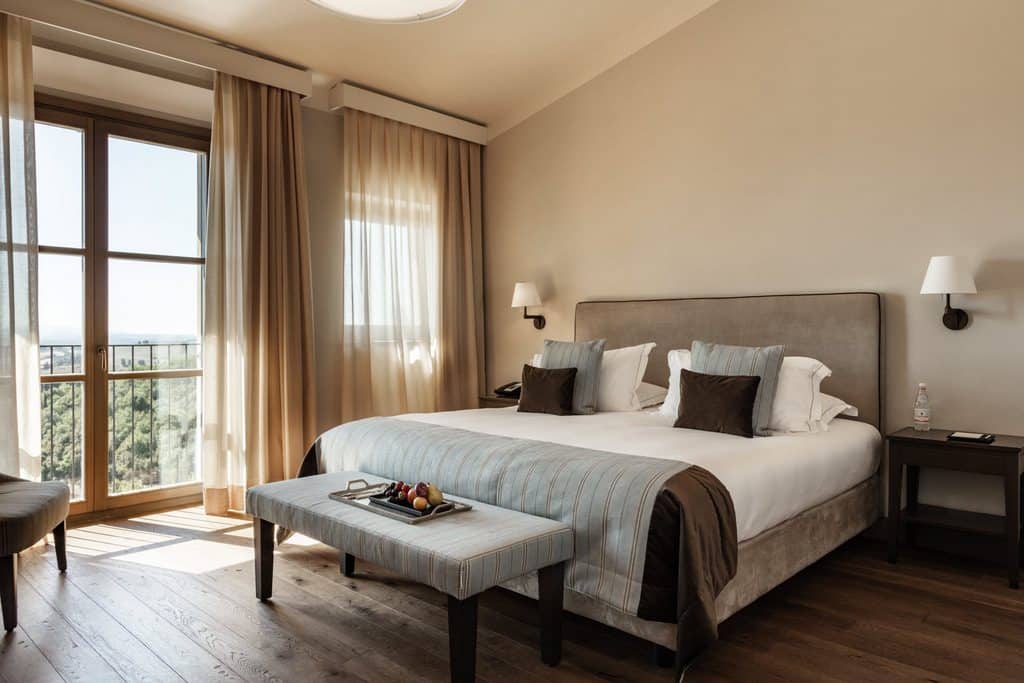
Toscana Resort Castelfalfi, an eco-sustainable retreat spanning 2,700 acres of protected terrain and the medieval village of Castelfalfi, continues to develop its eco-conscious guest offering with the addition of new golf facilities and enhanced sustainable features and experiences that extend beyond the resort’s luxury accommodations to restoration projects, spa and wellness, and gastronomy.
  The resort’s biggest new project will see the restoration of one of the village’s original farmhouses, converting it into a golf clubhouse for the renowned Golf Club Castelfalfi – Tuscany’s largest championship course. Set to launch in summer 2020, the clubhouse will offer a fine dining restaurant serving locally produced, organic Tuscan dishes, luxury changing rooms, and state-of-the-art meeting and event spaces. A naturally beautiful village forgotten by time, the medieval settlement of Castelfalfi, or Il Borgo, was carefully restored and revived through the Castelfalfi Restoration Project in 2007 to become Toscana Resort Castelfalfi. With an ancient castle, a restored chapel, and a welcoming local community, Castelfalfi is a destination within itself, comprised of an upscale collection of apartments, villas, and farmhouses available to purchase or rent; the flagship 5-star hotel Il Castelfalfi – TUI Blue Selection; Hotel La Tabaccaia set in a former stone tobacco factory; an expansive spa; three restaurants serving authentic and experimental Tuscan dishes; and five convivial bars. Other Highlights: Golfing in Support of Nature To complement the resort’s environmental efforts, Golf Club Castelfalfi carefully manages and recycles its water resources and is focused on the development of renewable energy. The scenic 18- and nine-hole courses over 9,000 metres of green hillside are GEO Certified, an internationally-recognised golf eco-label, and the sustainable design follows the natural morphology of the landscape surrounding the estate. Authentic Architecture with Low Environmental Impact New buildings and restored ruins throughout Castelfalfi – including the flagship 5-star hotel Il Castelfalfi, former tobacco factory Hotel La Tabaccaia, 48 apartments and farmhouses available to rent in the medieval village, and new apartments available to purchase – are constructed in keeping with green building principles, using recycled wood and reclaimed stone for low environmental impact. Design highlights include authentic Tuscan features such as wooden beams, terracotta ceilings and parquet floors. Farmhouse and villa ruins scheduled for restoration and available to purchase can be designed in collaboration with the resort’s team of eco-engineers and architects. Holistic Wellbeing and 5-star Luxury Il Castelfalfi, the resort’s 5-star hotel, is built in compliance with the latest regulations on sustainable architecture. The hotel is energy efficient with a sophisticated water and waste filtration system, low emission LED lighting, low CO2 emissions, and thermal energy for cooling and heating provided by the on-site biomass power plant. Guests can experience luxury eco-living with a host of activities including horse-riding, truffle hunting, wine tasting, and cooking classes. La Spa extends a range of soothing treatments made from local, organic ingredients and provides an idyllic place to unwind in keeping with the hotel’s dedication to holistic wellbeing. Organic Agriculture In addition to untouched countryside and ancient trees, Castelfalfi is home to 57 acres of vineyards and more than 10,000 olive trees. All agricultural production is organic, without the use of pesticides, to create high quality, natural products that help to support the local economy. Toscana Resort Castelfalfi now produces seven natural wine labels and over 35,000 litres of extra virgin oil yearly that are sold on property and locally. As an immersive experience, guests can enjoy vineyard tours followed by wine tastings in the cellars to learn more about how the wine and olive oil are produced. Biomass Plant and Water At the heart of the resort’s sustainable endeavours is a special central biomass plant installed to provide the entire estate with heating and cooling energy. Drinking water is provided by traditional wells connected to purification machines via a network of underground pipes, while rain water is collected throughout the year for the irrigation of the golf courses, vineyards, and olive groves. |




